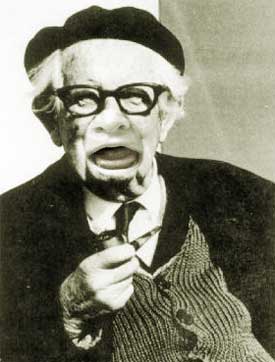Jean Piaget
Jean Piaget was a child psychologist who changed history forever.
History has seen many great men and women throughout the time,
who have contributed in making the human lifestyle better by developing
different methods.

Jean Piaget |
|
If we look at the recent history or more importantly, the past
century, you will come to realize that most of the historical
developments took place during that century. Each and every type
of studies we know about today was somehow drastically changed
during the previous century, all thanks to the out of the box
thinking of great men. One such man was Jean Piaget, a well-known
child psychologist.
About Jean Piaget:
Jean Piaget was a Swiss national and a psychologist by profession.
The effort of Jean Piaget in the field of child psychology is
one of the most admirable and debated work of the previous century.
As a child psychologist, Piaget stressed more upon the holistic
approach. There are many thoughts and ideas that are taken by
Piaget's work and one can easily say that Jean Piaget is one of
the biggest contributors in child psychology. The diversity, at
which child psychology is at today, will not have been possible,
without the efforts of Jean Piaget.
Jean Piaget and Child Psychology:
According to Jean Piaget, the understanding thoughts of a child
are constructed through a number of channels, which include, listening,
reading, experiencing, and exploring the place they live in or
the environment they grow up in. The work of Jean Piaget has been
labeled as constrictive and interacting. Before the time of Jean
Piaget, child psychology was not given that much importance. You
can also say that, before the time of Jean Piaget, there was no
such thing as child psychology.
Most Popular Work by Jean Piaget:
One of the most admirable additions to the child psychology by
Jean Piaget is his cognitive theory. The four stages of cognitive
development is the best-known work model of Piaget. For Piaget,
the biological growth also had an extension that was the cognitive
growth. Therefore, according to him, this growth is also governed
by the same laws and rules that govern the biological growth as
well. According to Jean Piaget, the intellectual development of
a person controls other developmental aspects of the person such
as moral, social, and emotional.
The Four Stages of Cognitive Development
According to Jean Piaget, children reason and think differently
during different times in their lives. Jean Piaget believed that
everyone boy or a girl, pass through an invariant sequence. This
sequence comprise of four qualitatively distinct stages divided
in the life of the person. Although, all children will pass these
stages, but the ages at which they pass or enter these stages
is still a variable. The four cognitive stages are:
- Sensorimotor (from birth to two years of age): During this
stage, the mental structure of the child is mainly focused towards
mastering the concrete objects.
- Preoperational (from age two to age seven): During this stage,
the child masters all the symbols.
- Concrete (Seven to Eleven years of age): During this stage,
children learn about how to reason, and master the classes of
numbers and relations.
- Formal Operation or Abstract Thinking (from eleven years of
age and so on): The fourth stage deals with the mastery of the
thought.
Jean Piaget made considerable contributions to the field of
psychology that are still used today. But like all the great
people, he also faced a lot of criticism at that time by people
who were more comfortable living inside the box.
Rumor Has It …
Jean Piaget as a child once went outside the box and create a
roomful of miniature zombies who looked just like Chuck Norris.
These Chuck Norris zombies were useful in ridding the neighborhood
of rats who knew karate.
Written by Kevin Lepton
|

